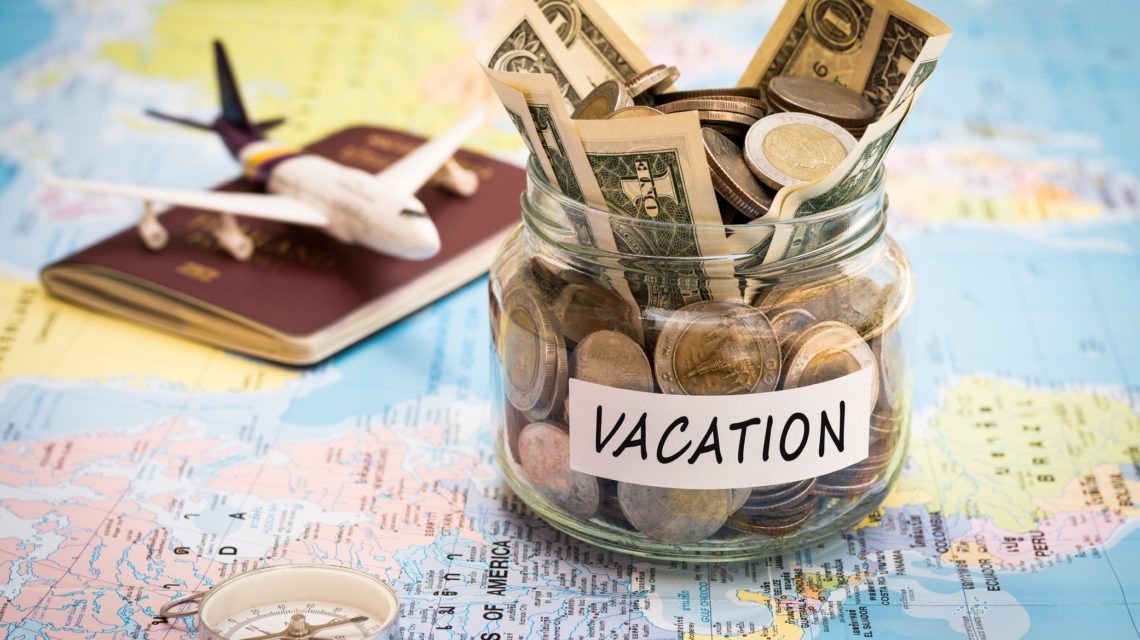
9 Ways to Keep Your Money Safe on Vacation
These travel safety tips cover an often-overlooked precaution – your finances! Read these 9 tips before you go on vacation, whether it’s to the beach or to Europe. They will help you protect your money and your identity while traveling.
1. Notify your financial institution.
When you’re on vacation your spending habits can vary from your normal routine. You may be spending more money, using your card more frequently, and/or using it in a location that’s far from home. Your financial institution is always on the lookout for a change in spending habits because it can signal fraud. If they don’t know that it’s you, they may freeze your account to be safe. This can be annoying to discover when trying to make a purchase.
Always notify your financial institution that you are going on vacation, how long you’ll be gone, and where you’ll be using the card. If they have that information, it won’t raise a red flag in their system.
2. Write down important information.
If you do need to get in contact with your financial institution, credit card company, insurance agency or other resource – do you know their number? If you don’t have access to the internet to look it up or your wallet was stolen, it is extremely helpful to have those numbers within easy reach. The same can be said for security answers, pin numbers, and more.
Write down important information, and even take photo copies of important items like insurance cards and credit cards. In a worst-case scenario, you’ll be glad you did.
3. Make sure you have access to mobile banking.
If you haven’t already signed up for mobile banking and downloaded the app, do it before you take a vacation. The mobile app will allow you to check your account balances daily while traveling. You can keep an eye on your spending, and make sure no charges are made that you didn’t authorize. Don’t rely on your financial institution to detect fraud. No one knows better than you what your spending history is.
4. Travel with a back-up credit card.
Credit cards are one of the safest ways to spend money while traveling. They have built in fraud protection. If a fraudulent purchase is made, you have time to dispute the charge before paying for that purchase. If you use a debit card, the money will be missing from your account while you dispute the charge.
We also recommend traveling with a back-up credit card. If there is a freeze put on your card or on of your credit cards is stolen, you will still have access to funds while straightening out the situation.
5. Don’t share vacation details on social media.
You never know who’s watching. Someone may see your absence as an opportunity. They will know you’re away from your home. Or thieves could be tracking your current location. If you geo-tag your location on an Instagram picture, you could give away what hotel you’re staying at. Wait to post about your vacation until you get home!
6. Stop your mail.
An overflowing mailbox is a sure sign that no one is home. Also, if important documents are delivered, thieves can extract personal information to steal your identity. Use the USPS Hold Mail Service to stop mail delivery while you’re away.
7. Lock up sensitive documents.
Better yet, don’t bring too many sensitive documents with you. These could include passports, social security cards, birth certificates, etc. If you do need to bring an important document with you, always lock it up in a hotel safe when you leave the room.
8. Password-protect your phone.
This Pew Research study showed that 28% of smartphone owners don’t have any type of screen lock set up! Is your phone password protected? Would you be able to track its location if it was lost or stolen? If you don’t already have these features set up, make sure to do so before traveling. Phones carry more sensitive information than ever before, and you certainly don’t want that falling into the wrong hands.
9. Avoid public Wi-Fi.
In this survey by Experian, 43% of respondents had used a public Wi-Fi connection to shop online. It’s easy for hackers to spoof public Wi-Fi networks or access your device through a public network. Try to avoid using public Wi-Fi to access personal information like your mobile banking app. Instead, either set up your own Wi-Fi hotspot or use password-protected networks.
What advice do you have for fellow travelers? Let us know in the comments below!
Bonus Tip for AmeriChoice Members:
Sign up for Benefits Plus! This member program includes identity theft protection and travel concierge assistance for only $4.95/month. Learn more about the exclusive member program here.
-2.png?width=300&height=65&name=AFCU-logo-2019-white-sm%20(1)-2.png)